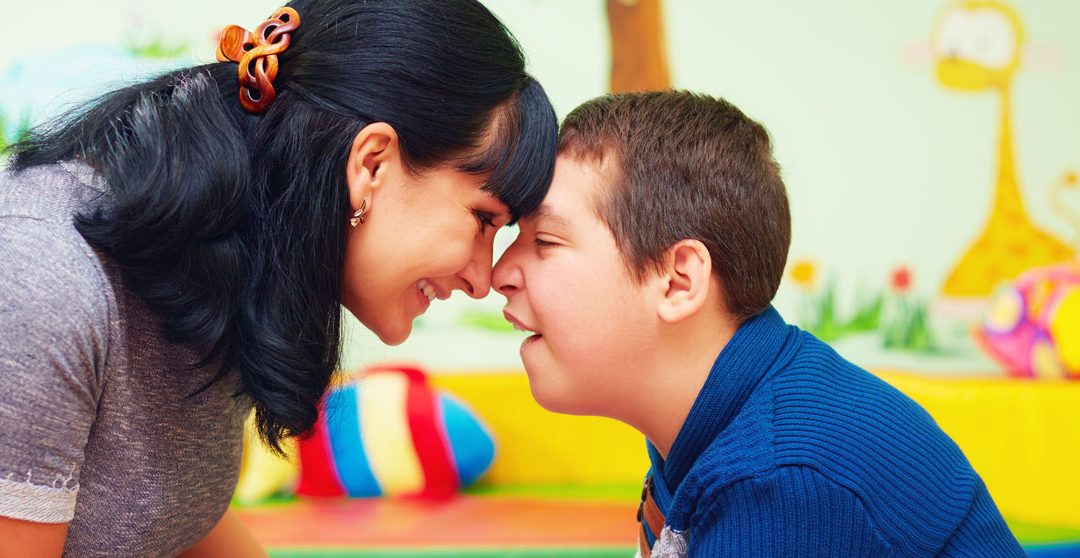Early Childhood
HOPE DISABILITY
Early Childhood Supports
If you are an individual with a disability, or a family member of an individual with a disability, you are eligible for Early Childhood Support Services (ECSS) under the National Disability Insurance Scheme (NDIS).
The National Disability Support Service provides early childhood services to NDIS Participants and their families. We work with individuals who have disability and their families across the lifespan to help them achieve their goals and reach their full potential. Each child is unique and should be supported accordingly. The programs we run are designed to meet the diverse needs of different age groups and support children from birth through to preschool.
These services will not only help your child thrive but also give other family members the support they need too.
Get a Free Quote!
NDIS Early Childhood Services
NDIS early childhood intervention
Anyone with a disability aged under 6 may be eligible for early childhood intervention services. These services help eligible children make good progress on important developmental milestones like sitting independently, walking, climbing, understanding language, and learning new skills. Children with Autism, Cerebral Palsy, Dementia, Disabilities, Speech Impairments, and other Complex Needs are eligible for early childhood intervention.
NDIS early intervention
Early intervention is a program that helps eligible children catch up on their physical, speech, and cognitive development. It is combined therapy that includes a speech therapist, occupational therapist, and psychologist. Children receiving this type of intervention are assessed at a very young age to determine the areas they are behind in and are given the appropriate therapy. Early intervention treatment is provided by a team of medical professionals, therapists, and educators. Each child is assessed and given their own individual plan of action.
NDIS early childhood packages
You may be eligible for a range of early childhood support services under the National Disability Insurance Scheme, if you have a disability.
NDIS early intervention packages
If you have a child who is under the age of five, you are eligible to receive an early intervention package. It is a comprehensive package of support to help your child with disabilities access services. These services are designed to support children with certain disorders and general developmental delays. The package includes assessment, planning, and intervention. The goal is to increase your child’s skills to a level that allows them to participate in school and community activities with their peers.
When you first apply to receive early intervention services, you will be invited to participate in a comprehensive assessment of your child’s development. This assessment will help us determine your child’s strengths and weaknesses. We will also use this information to identify areas of developmental delay so we can provide targeted support.
Early intervention preschool
If your child is four years old or younger, you may be eligible for early intervention preschool. Early intervention preschool is an intensive program that is designed to help children with disabilities develop the social and communication skills they need to be successful in school. It also teaches your child how to self-regulate their behavior and self-care.
This program is designed for children who have a diagnosis of a developmental delay or a disability that affects their ability to learn or behave appropriately. Young children with disabilities are often at risk due to their small size and lack of experience. This can make it difficult for them to interact with others and participate fully in school programs. Early intervention preschool can help your child overcome these challenges by teaching them how to better manage their behavior and interact with others.
Early childhood early intervention NDIS
If your child is five years old or younger, you may be eligible for early childhood early intervention under the National Disability Insurance Scheme (NDIS). This type of early intervention is different from school-based early intervention. It is delivered in the home or another environment where the child feels comfortable.
This type of early intervention focuses on the child’s strengths and needs. It is intended to give children the supports they need to function in their day-to-day lives. It is different from school-based early intervention as it is not intended to give children academic help. Rather, it is geared towards enhancing social and communication skills so that children can function in the community.
Early childhood intervention NDIS
If your child is six or older, you may be eligible for early childhood intervention under the National Disability Insurance Scheme (NDIS). Early childhood intervention is designed to give children with disabilities the supports they need to succeed in school.
This type of early intervention is delivered in a school setting. It is different from school-based early intervention as it is not intended to give children academic help. Rather, it is geared towards enhancing social and communication skills so that children can function in the community.
Early childhood intervention NDIS
If your child is six years old or older, you may be eligible for early childhood intervention under the National Disability Insurance Scheme (NDIS). This type of early intervention is designed to give children with disabilities the supports they need to succeed in school. It is delivered in a school setting.
This type of early intervention is different from school-based early intervention as it is not intended to give children academic help. Rather, it is geared towards enhancing social and communication skills so that children can function in the community.
Early intervention center
If you have a child with a disability, you may be eligible for an early intervention center. An early intervention center is a community-based program that is designed to provide your child with the support they need to function in their day-to-day lives. It is different from school-based early intervention as it is not intended to give children academic help. Rather, it is geared towards enhancing social and communication skills so that children can function in the community.
Early intervention centers are often located in the community where people live and are easily accessible. Often, it will be a facility where people can access support from a team of trained professionals.
Early intervention education
If you have a child with a disability, you may be eligible for early intervention services that include education. This type of early intervention supports individuals who are in school by serving as an advocate for your child. It is different from school-based early intervention as it is not intended to give children academic help. Rather, it is geared towards enhancing social and communication skills so that children can function in the community.
Early childhood early intervention NDIS
If your child is six or older in the early childhood period, you may be eligible for early childhood early intervention under the National Disability Insurance Scheme (NDIS). This type of early intervention is designed to give children with disabilities the supports they need to succeed in school.
This type of early intervention is delivered in a school setting. It is different from school-based early intervention as it is not intended to give children academic help. Rather, it is geared towards enhancing social and communication skills so that children can function in the community.
Early childhood intervention NDIS
If your child is six or older in the early childhood period, you may be eligible for early childhood early intervention under the National Disability Insurance Scheme (NDIS). This type of early intervention is designed to give children with disabilities the supports they need to succeed in school.
This type of early intervention is delivered in a school setting. It is different from school-based early intervention as it is not intended to give children academic help. Rather, it is geared towards enhancing social and communication skills so that children can function in the community.
our Support
Hope Disability Support provides support to all young people and adults with everything related to support, care, accommodation, and independent living issues. Call Hope Disability Support for all your support with the NDIS.
Clients say
Hope Disability Support's team Hope Disability Support understands us and our circumstances. They go above and beyond. We are so satisfied with their services that we will never leave.

The fact that they are available 24 hours a day is astonishing! I wouldn't have any idea what to do without Hope Disability Support. They've been there for us in times when our families needed it most.

Hope Disability Support and its experienced staff have changed my child's life for the better. I would highly recommend Hope Disability Support's services.

Previous
Next
News & Updates
We support to all youths, Young people and adults regarding anything, care , support, accommodation and independent living issues.
Early Childhood Supports FAQ
What is early childhood intervention?
Early Childhood Intervention (ECI) is a service that provides support to children aged 0–6 years to assist them to develop to their full potential. This could be in the areas of learning, communication, social skills, physical health and safety, and psychological health. Children who receive ECI services benefit from being supported to: Build better communication and social communication skills Differentiate between feelings and behaviors Understand feelings and the importance of empathy and social skills Develop awareness and confidence in their own abilities Develop creativity and imagination Have a sense of self and their own identity Learn and develop resilience - how to deal with stress and adversity.
How early intervention education works?
ECI is provided as part of an early childhood intervention program. An early childhood intervention program can be delivered in a variety of ways. It may be delivered by a registered early childhood teacher, an Early Childhood camp, or a preschool. In some cases, it may be delivered by an outside agency such as a playgroup or a child care center. Services offered may include Playgroup: A series of activities where children can have an opportunity to interact and have fun with other children and adults. They may also learn social skills while they are there. This can be a very helpful place for parents to take their children as well. Preschool: This is part of the school program where children between the ages of 2 and 6 receive education along with the rest of the class. It is usually for a few hours a day, 5 days a week.
Where do you provide early childhood services?
We operate in all states and territories. You can find a map of our service locations here. Our service locations can also be used to find out more about the types of services we provide.
How does NDIS early intervention work?
ECI services are provided using an approach known as ‘intervention’. Intervention services help provide the support that an individual with a disability needs to improve their social, psychological, and physical well-being. This approach is different from most other types of care and support that may exist in the community. People without disabilities may receive support in these areas and may not even be aware that there is a difference. The difference is that with intervention, people are supported to develop their skills and abilities to the best of their ability in a clinical environment by a specialist.
Where can I get more information?
More information about the National Disability Insurance Scheme can be found at www.ndis.gov.au. Information about the National Disability Support Service can be found at www.disabilitysupport.gov.au.
Do you provide individual early childhood support?
We provide a range of services to assist you with your child’s development. You may notice that some of our programs include ‘ECS’ in their name. This stands for early childhood support. This does not mean that the program is provided to an individual with a disability. However, some programs may be delivered in partnership with an Early Childhood service. For example, the ECS program may be delivered as part of a playgroup, or preschool, or be run on a home-based basis. The ECS program may include a variety of services such as Early Childhood education and support Social skills Physical health and safety







